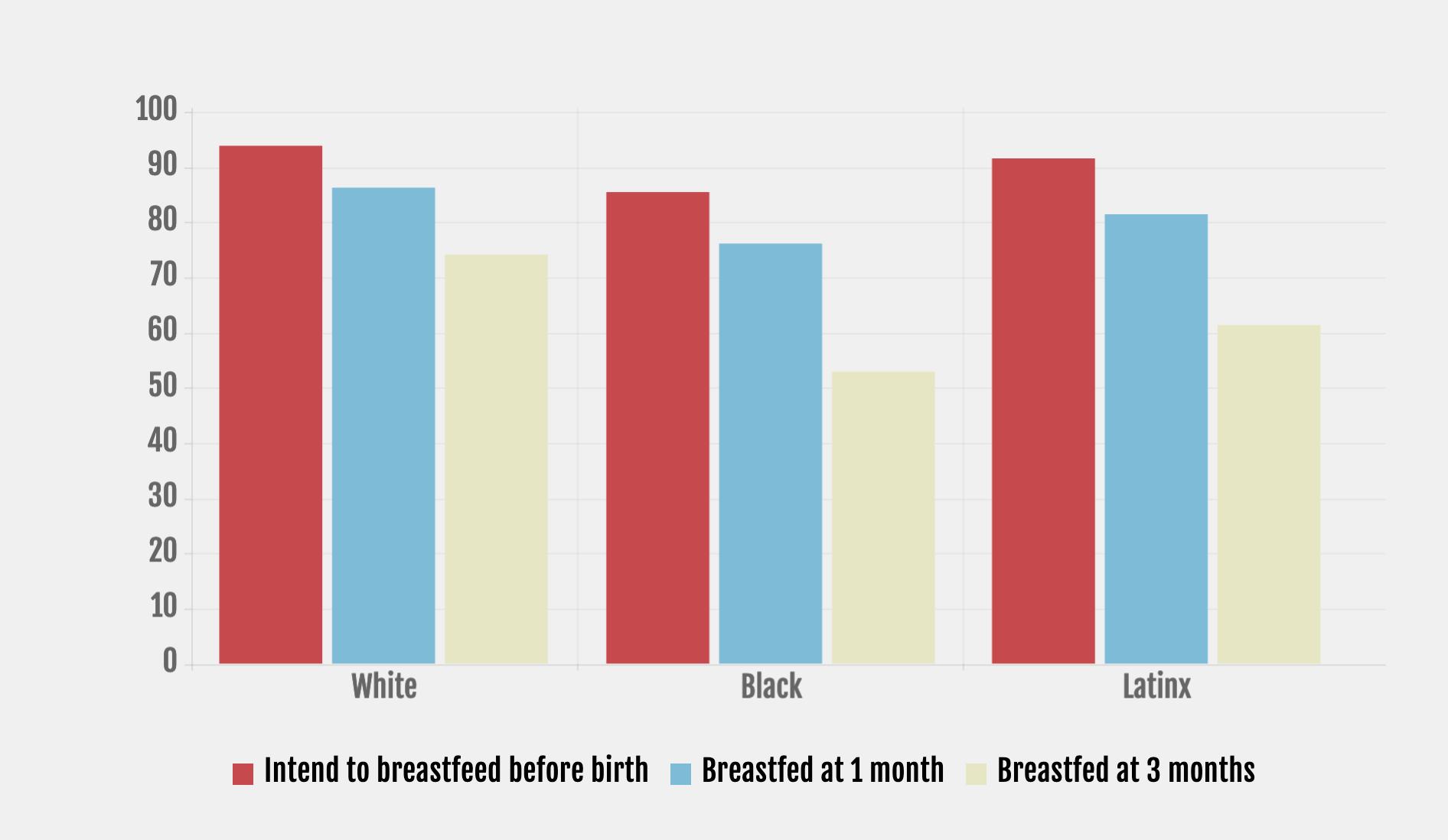Black women have had the lowest breastfeeding initiation rates of all races. The reasons are complex and deeply rooted in slavery, the commodification of Black bodies and the historical oppression of Black birth in the United States. This page is meant to be a brief overview of the issue of low Black breastfeeding rates while providing solutions and resources that you can share with your communities and clients.
It is recommended that moms and birthing persons exclusively feed their infants breast milk or human milk for the first six months of life and continue to supplement their infant’s diet with the milk for up to two years of age and beyond.
It also has life-saving benefits for mothers by increasing the production of oxytocin, the “love hormone,” which can help the mom/birthing person by:
It also helps burn extra calories for the mom. Black moms and infants who don’t breastfeed miss out on these important health benefits.
The reasons stem from history, social barriers to breastfeeding, and lack of support

Some people have mistaken beliefs

The racial gap in breastfeeding rates is shrinking thanks to tireless leaders like Kimberly Seals Allers, founder of Black Breastfeeding Week, and the work of lactation and infant feeding specialists, health professionals who specialize or are certified in human lactation and breastfeeding.
While any supportive person can increase the chances of breastfeeding initiation, Black women’s complex history warrants culturally competent lactation and infant feeding specialists.
Black women specializing in helping and supporting Black moms to breastfeed are becoming increasingly crucial to changing the narrative around breastfeeding. Meet Oakland-based lactation consultants TaNefer Camara and Brandi Gates.
Baby Friendly: 10 Successful Steps to Breastfeeding
AAFP Policy Statement on Breastfeeding
The Surgeon General’s Call to Action to Support Breastfeeding
Educational Objectives and Skills for the Physician with Respect to Breastfeeding
Black Mothers Breastfeeding Association
African American Breastfeeding Network
Breastfeeding Support Group for Black Moms
Black Breastfeeding Circle of Mamas